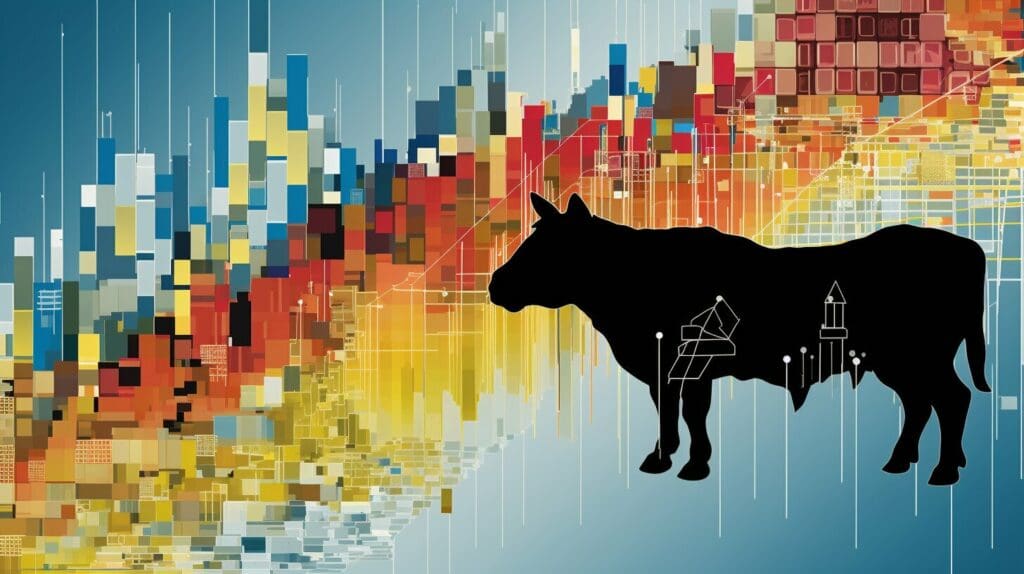When visiting Argentina, it’s important to understand the currency exchange system and how to make the most of your money. The country has a volatile economy with high inflation, which has led to multiple exchange rates and a preference for US dollars. By knowing where to exchange money and how to access the unofficial blue dollar rate, you can stretch your money further and have a more affordable experience in Argentina.
Key Takeaways:
- Argentina’s economy experiences high inflation, resulting in multiple exchange rates.
- US dollars are often preferred in Argentina as a way to protect against inflation.
- Accessing the unofficial blue dollar rate can provide better value for your money.
- Consider using Western Union or cuevas to access the blue dollar rate.
- Using credit cards and budgeting can help you make the most of your money in Argentina.
- Not all Spanish Schools in Buenos Aires accept pesos. Look for Vamos Academy
Understanding the Currency Exchange System in Argentina
Argentina’s currency exchange system is unique and complex, shaped by the country’s high inflation and economic volatility. The official currency is the Argentine peso, but many locals prefer to hold US dollars as a way to protect their savings from inflation. This preference for dollars has led to the creation of multiple exchange rates, each with its own implications for the value of your money while in Argentina.
The Argentine government imposes restrictions on the purchase of dollars, which has given rise to a thriving black market for currency exchange. This, in turn, has led to the existence of an unofficial exchange rate known as the “blue dollar.” It’s important to understand that this blue dollar rate is not recognized by the government, but it often offers a more favorable value than the official rate.
To navigate the currency exchange system in Argentina, it’s crucial to familiarize yourself with the different exchange rates and their implications. Understanding how to access the unofficial blue dollar rate can help you make the most of your money and stretch your budget further during your time in Argentina.
Table: Currency Exchange Rates in Argentina
| Exchange Rate | Official Rate | Blue Dollar Rate |
|---|---|---|
| Description | The exchange rate set by the government | The unofficial exchange rate on the black market |
| Value | Lower value compared to the blue dollar | Higher value compared to the official rate |
| Accessibility | Accessible through banks and currency exchange counters | Accessible through cuevas or unofficial exchange houses |
| Restrictions | Government-imposed restrictions on purchasing dollars | Not recognized by the government, operates on the black market |
The Blue Dollar: Accessing the Best Exchange Rate
One of the key strategies for making your money go further in Argentina is accessing the unofficial exchange rate known as the blue dollar. This rate offers a much better value than the official rate and can significantly enhance your purchasing power. It’s important to note that the blue dollar rate is typically set by underground exchange houses operating on the black market.
To access the blue dollar rate, one option is to consider using Western Union. This reputable money transfer service often offers a similar rate to the blue dollar, making it a convenient and reliable choice. By using Western Union to forward cash to yourself and picking it up at a branch in Argentina, you can take advantage of the favorable exchange rate and stretch your money further.
It’s important to be aware that other methods of exchanging money, such as banks or airport counters, may not provide the same favorable rate as the blue dollar. Therefore, it’s recommended to explore options like Western Union or other trusted channels to ensure you receive the best exchange rate possible.
To illustrate the difference between the blue dollar rate and the official rate, the table below provides a comparison of the exchange rates and their impact on the value of US dollars:
| Exchange Rate | Value of USD |
|---|---|
| Official Rate | $1 = X Argentine Pesos |
| Blue Dollar Rate | $1 = Y Argentine Pesos |
As you can see from the table, the blue dollar rate offers a higher value for US dollars compared to the official rate. This means that by accessing the blue dollar rate, you can get more Argentine pesos for your money, allowing you to save and make your budget go further during your stay in Argentina.
Exchanging Money in Argentina: Western Union
When it comes to exchanging money in Argentina, Western Union is a reliable and convenient option. With Western Union, you have the flexibility to forward cash to yourself online using a bank account, debit or credit card. Once the transaction is complete, you can pick up the cash at a Western Union branch in Argentina, allowing you to access the highly sought-after blue dollar rate. This means that you can make your money go further and get more value for your currency.
One of the advantages of using Western Union is the ease of the process. You can initiate the transfer from the comfort of your own home and then conveniently collect the cash in Argentina. It’s important to note that transaction fees may apply, so be sure to check for promotional codes or offers that may help you save on fees. Additionally, it’s recommended to be prepared for potential wait times at the branches, as these locations can sometimes be busy.
Exchanging Money in Argentina: Western Union – A Quick Overview
| Pros | Cons |
|---|---|
| Convenient online transfer process | Potential transaction fees |
| Access to the blue dollar rate | Possible wait times at branches |
| Reliable and trusted service |
Overall, Western Union provides a convenient and reliable option for exchanging money in Argentina. By utilizing this service, you can access the favorable blue dollar rate and make your money go further during your travels. Remember to keep an eye out for promotional codes to potentially save on transaction fees and be prepared for potential wait times at the branches. With Western Union, you can ensure a smooth and efficient currency exchange process in Argentina.
Cuevas: Unofficial Currency Exchange Houses
When it comes to exchanging money in Argentina, cuevas, or unofficial currency exchange houses, are a popular choice for accessing the best exchange rates. These exchange houses can be found throughout the country, and many travelers have had positive experiences using them. However, it’s essential to exercise caution and follow safety measures to ensure a secure transaction.
Cuevas are known for offering the blue dollar rate, which is typically more favorable than the official exchange rate. This rate is set by underground exchange houses operating on the black market. To find a reliable cueva, it’s recommended to ask locals or trusted sources for recommendations. They can provide insights into reputable establishments that offer competitive rates.
While using a cueva can be beneficial, it’s important to be aware of the potential risks. These exchange houses operate outside the formal financial system, making them less secure compared to banks or reputable currency exchange agencies. To protect yourself, consider filming the transaction to have evidence in case of any issues. Additionally, make sure to verify the bills and count them out loud before leaving the establishment.
| Pros | Cons |
|---|---|
| Access to the blue dollar rate | Less secure than banks |
| Competitive exchange rates | Higher risk of counterfeit bills |
| Reliable cuevas recommended by locals | Requires caution and safety measures |
Quote:
“Cuevas can offer more favorable exchange rates, but it’s crucial to be cautious and prioritize safety. Always verify the bills and count them out loud before leaving the establishment.” – Local Travel Expert
It’s important to note that cuevas may be subject to legal restrictions and government crackdowns, as they operate outside the formal financial system. Therefore, it’s advisable to stay informed about the current regulations and any potential risks before engaging in any currency exchange transactions.
Exchanging Money in Buenos Aires
When it comes to exchanging money in Buenos Aires, you have several options available to you. Whether you prefer the convenience of a reliable service like Western Union or the thrill of negotiating with local arbolitos for the best blue dollar rate, there are ways to make your money go further in the Argentine capital.
One popular option is to visit Calle Florida, a bustling shopping street in downtown Buenos Aires. Here, you’ll find representatives known as arbolitos who offer currency exchange services at the blue dollar rate. Keep in mind that it’s important to negotiate the rate and exercise caution when dealing with them.
Another option is to visit select branches of Banco La Nacion located in Ezeiza International Airport. While the rates may be closer to the official rate, it offers a convenient option for travelers who prefer to exchange money at a reputable bank.
Remember, no matter which method you choose, it’s always a good idea to compare rates and be aware of any potential fees or limitations. By being proactive and strategic in your approach to exchanging money, you can make the most of your time in Buenos Aires and ensure that your travel funds stretch as far as possible.
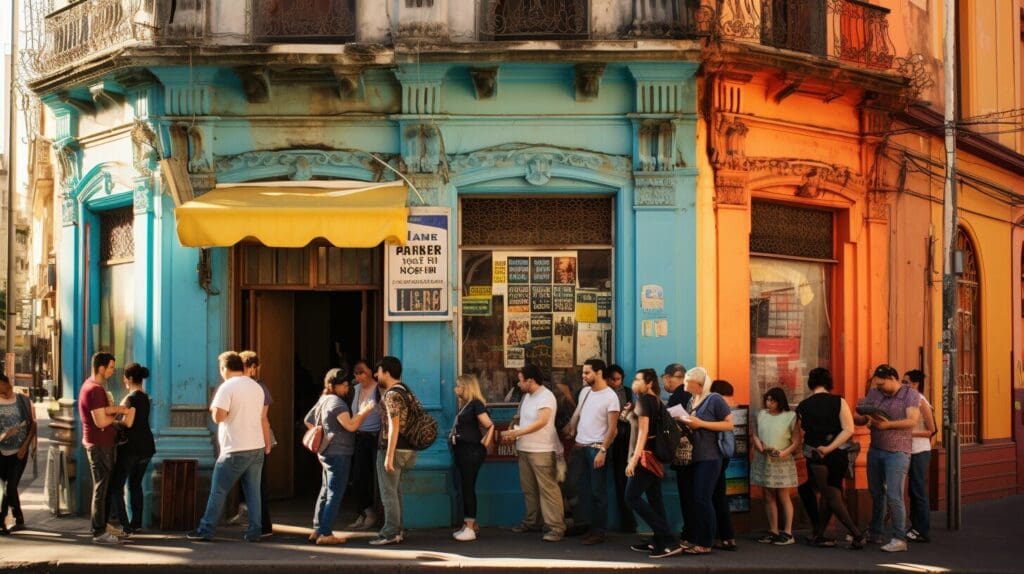

Using Credit Cards in Argentina
When it comes to managing your travel money in Argentina, using credit cards can be a convenient and practical option. As of December 2022, foreign tourists can use their foreign credit cards and receive a rate close to the blue dollar rate, making it an attractive choice for many visitors. This allows you to avoid the hassle of exchanging physical cash and provides a sense of security.
While using credit cards can be advantageous, it’s important to check with your credit card company for any potential fees or limitations. Some credit cards may charge foreign transaction fees or have restrictions on usage. It’s advisable to notify your credit card company of your travel plans to ensure that your card is not blocked for security reasons while you are in Argentina.
Using credit cards in larger cities like Buenos Aires may be more practical compared to smaller towns, as they are widely accepted in restaurants, shops, and tourist attractions. However, it’s always a good idea to carry some cash for emergency situations or places that do not accept cards.
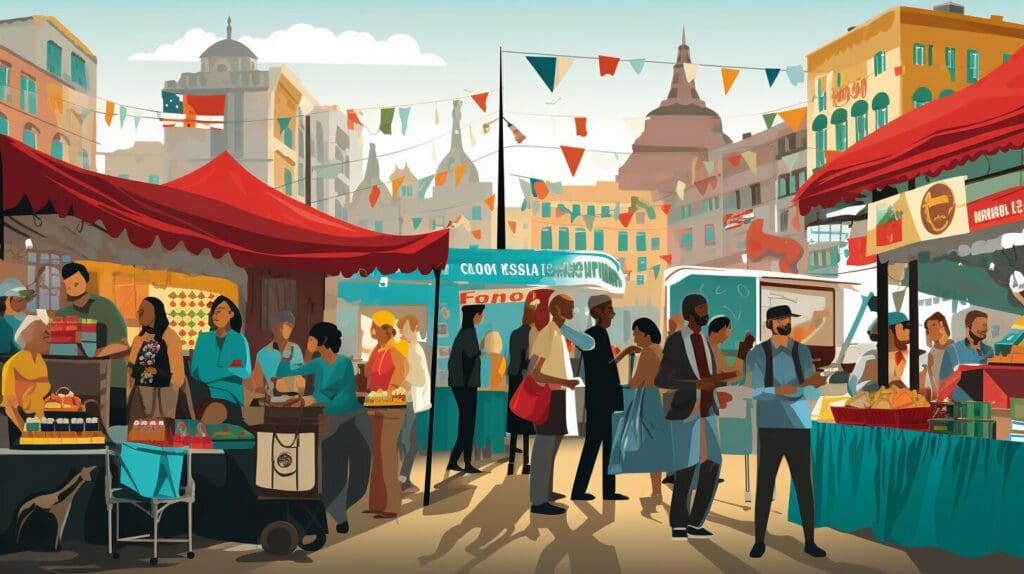

Benefits of Using Credit Cards in Argentina
- Convenience: Credit cards offer a convenient and secure way to make payments during your travels in Argentina.
- Blue Dollar Rate: With foreign credit cards, you can often receive a rate close to the blue dollar rate, allowing you to take advantage of favorable exchange rates.
- Security: Using credit cards reduces the need to carry large amounts of cash, minimizing the risk of loss or theft.
- Record-Keeping: Credit card statements provide a detailed record of your expenses, making it easier to track your spending while in Argentina.
Overall, using credit cards in Argentina can offer a convenient and secure way to manage your travel money. Just be sure to check for any fees or limitations associated with your credit card, and always have a backup plan in case you encounter places that don’t accept cards. By being prepared and mindful of your spending, you can make the most of your time in Argentina without worrying about carrying large amounts of cash.
Cost of Living in Argentina: Expenses Breakdown
When planning your trip to Argentina, understanding the cost of living is essential for budgeting and managing your travel expenses. To help you make informed decisions and ensure your money goes further, here is a breakdown of the main expense categories you should consider:
1. Rent:
The cost of accommodation in Argentina can vary depending on the city and neighborhood. In Buenos Aires, for example, a one-bedroom apartment in the city center can cost around $450 to $600 per month, while a similar apartment in a suburban area may range from $350 to $500 per month. It’s important to research different neighborhoods and consider the amenities and accessibility that best suit your needs.
2. Food:
Argentina is known for its delicious cuisine, and dining out can be a memorable experience. On average, a meal at an inexpensive restaurant can cost around $8 to $12, while a three-course meal for two at a mid-range restaurant may range from $30 to $50. If you prefer to cook at home, groceries for a week can amount to approximately $40 to $60, depending on your dietary preferences and shopping habits.
3. Transportation:
Getting around in Argentina is relatively affordable. Public transportation options, such as buses and subway systems, offer convenient and cost-effective ways to explore the cities. A single bus ticket in Buenos Aires, for example, costs around $0.40, while a monthly pass can be purchased for approximately $20. Taxi rides may vary depending on distance and time of day, but a short trip within the city center usually ranges from $4 to $7.
4. Entertainment and Sundries:
Part of experiencing Argentina’s vibrant culture involves enjoying entertainment and leisure activities. Movie tickets, for instance, cost around $7 to $10, while visiting a museum or art gallery can range from $2 to $8, depending on the venue. Additionally, everyday sundries such as toiletries, cleaning products, and other personal items can be purchased for approximately $20 to $30 per month.
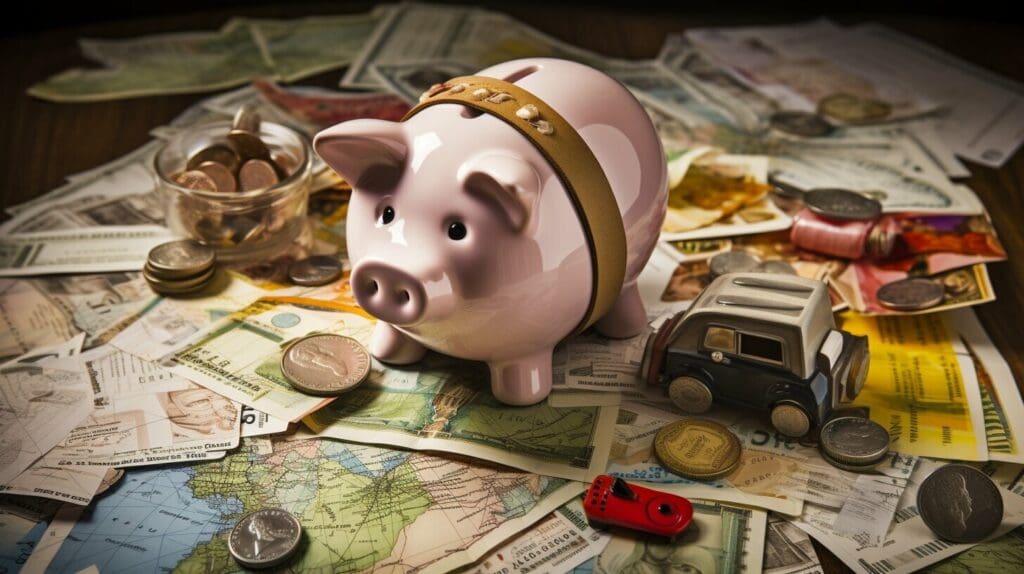

Keep in mind that these figures are approximate and can vary depending on your personal preferences, lifestyle, and the city you are visiting. Prices are also subject to inflation, so it’s advisable to research updated information and consider potential fluctuations when budgeting for your trip.
| Expense Category | Price Range |
|---|---|
| Rent | $350 – $600 per month |
| Food | $8 – $50 per meal |
| Transportation | $0.40 – $7 per trip |
| Entertainment and Sundries | $2 – $30 per item/activity |
Tips for Stretching Your Money in Argentina
When traveling to Argentina, it’s important to make your money go further so you can fully enjoy all the incredible experiences this country has to offer. By following these tips, you can maximize your budget and make the most of your travel money.
Pay in Cash Using the Blue Dollar Rate
One of the best ways to stretch your money in Argentina is by paying in cash and taking advantage of the blue dollar rate. This unofficial exchange rate offers a better value than the official rate and can be accessed through certain methods like Western Union or unofficial currency exchange houses called cuevas. By utilizing the blue dollar rate, you can save on transactions and make your money go further.
Budget for Expenses
Creating a budget for your expenses can help you stay on track and avoid overspending. Take into account the cost of accommodations, transportation, meals, and activities, and allocate a specific amount for each category. By monitoring your spending and sticking to your budget, you can ensure that you have enough money for the duration of your trip.
Explore Local Markets
Argentina is known for its vibrant local markets, where you can find fresh produce, local delicacies, and unique souvenirs at affordable prices. Take the time to explore these markets and shop for groceries, snacks, and souvenirs. Not only will you get a taste of the local culture, but you’ll also be able to save money by avoiding tourist traps and expensive restaurants.
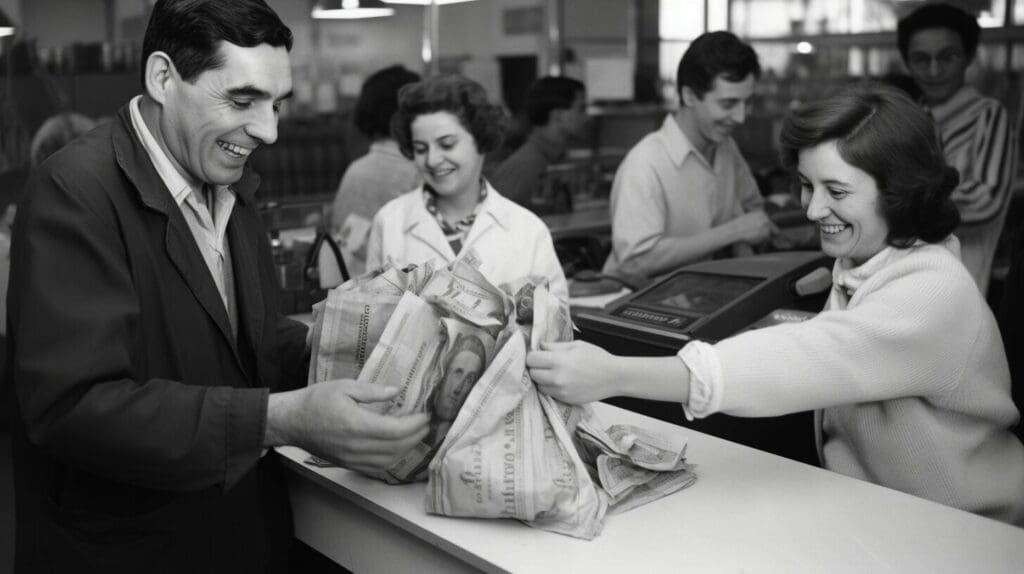

By following these tips, you can stretch your money in Argentina and have an unforgettable experience without breaking the bank. Whether you’re exploring the bustling streets of Buenos Aires, hiking through the stunning landscapes of Patagonia, or sampling world-renowned Argentine wines in Mendoza, careful spending and strategic choices will help you make the most of your travel money.
Exploring Argentina on a Budget
Traveling to Argentina doesn’t have to break the bank. With careful planning and some savvy budgeting, you can explore this captivating country while keeping your travel expenses in check. Whether you’re exploring the vibrant streets of Buenos Aires, marveling at the breathtaking landscapes of Patagonia, or indulging in the world-renowned wines of Mendoza, there are plenty of budget-friendly experiences to enjoy.
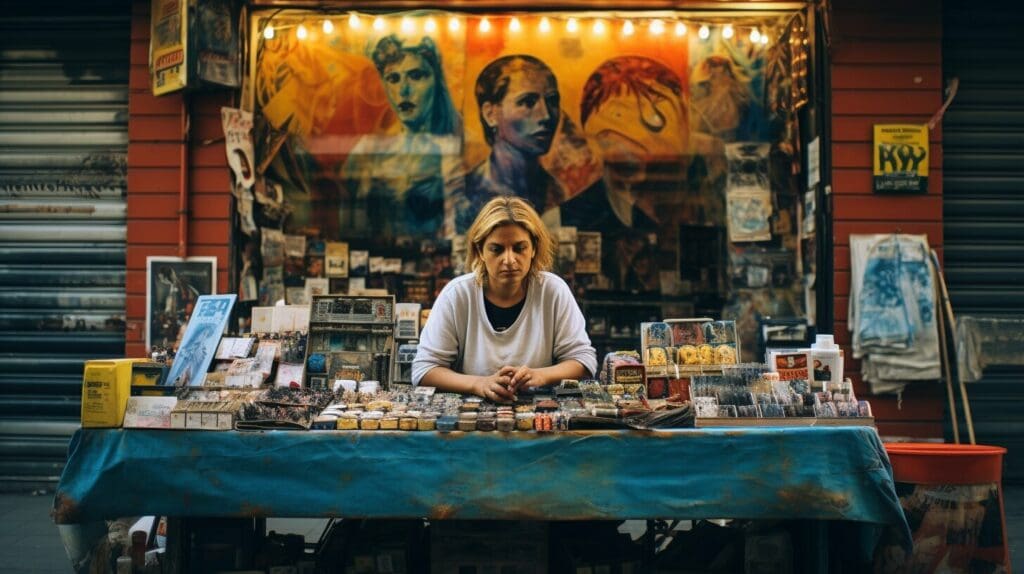

One of the best ways to save money while exploring Argentina is to take advantage of the many free attractions available. From sprawling parks and gardens to fascinating museums and galleries, there are plenty of opportunities to immerse yourself in the country’s rich cultural heritage without spending a dime. Be sure to check out Buenos Aires’ Recoleta Cemetery, home to the final resting places of many notable Argentines, or take a stroll along the famous Caminito street in the colorful neighborhood of La Boca.
Another way to stretch your travel budget in Argentina is to seek out happy hours and lunch specials. Many restaurants and bars offer discounted prices during specific times of the day, allowing you to sample local delicacies and enjoy a few drinks without breaking the bank. Exploring local street food markets is also a great way to experience the flavors of Argentina without spending a fortune. From empanadas and choripán to medialunas and dulce de leche, there’s a wide variety of tasty treats to try.
When it comes to getting around, opt for local transportation options to save money on taxis or private transfers. Argentina has a well-connected network of buses and trains that can take you to various destinations at a fraction of the cost. If you’re feeling adventurous, consider taking overnight buses for long-distance travel, as they can save you the cost of a night’s accommodation. Just be sure to book your tickets in advance to secure your seat.
In summary, exploring Argentina on a budget is entirely possible. By taking advantage of free attractions, seeking out discounts and specials, and opting for local transportation options, you can maximize your travel experience without breaking the bank. So pack your bags, immerse yourself in the vibrant culture, and embark on an unforgettable adventure in Argentina without worrying about your travel expenses.
Safety Considerations for Handling Money in Argentina
When it comes to handling money in Argentina, it’s important to prioritize your safety and take precautions to protect your finances. While the country is generally safe for travelers, it’s always wise to be prepared and stay vigilant. Here are some key safety considerations to keep in mind:
1. Keep your cash secure:
Keep your cash discreet and avoid flaunting large amounts of money in public. Consider using a money belt or pouch to carry larger sums of cash, and try to make withdrawals from ATMs in well-lit and busy areas. It’s also a good idea to keep your cash distributed in different pockets or locations to minimize the risk of losing everything in case of theft.
2. Be cautious when exchanging money:
When exchanging money, it’s important to be cautious and use reputable sources. Stick to official exchange houses, banks, or trusted currency exchange services like Western Union. Avoid exchanging money on the street or with strangers, as these situations can be more prone to scams or counterfeit bills.
3. Count your bills out loud:
When receiving or exchanging cash, always count your bills out loud to ensure accuracy and confirm the amount. This can help you identify any discrepancies or potential issues before you leave the exchange venue. Additionally, consider familiarizing yourself with the local currency’s security features to better detect counterfeit bills.
By following these safety considerations, you’ll be better equipped to protect your money and have a worry-free experience while traveling in Argentina. Remember to stay informed about the current safety situation, consult trusted sources for advice, and be mindful of your surroundings.
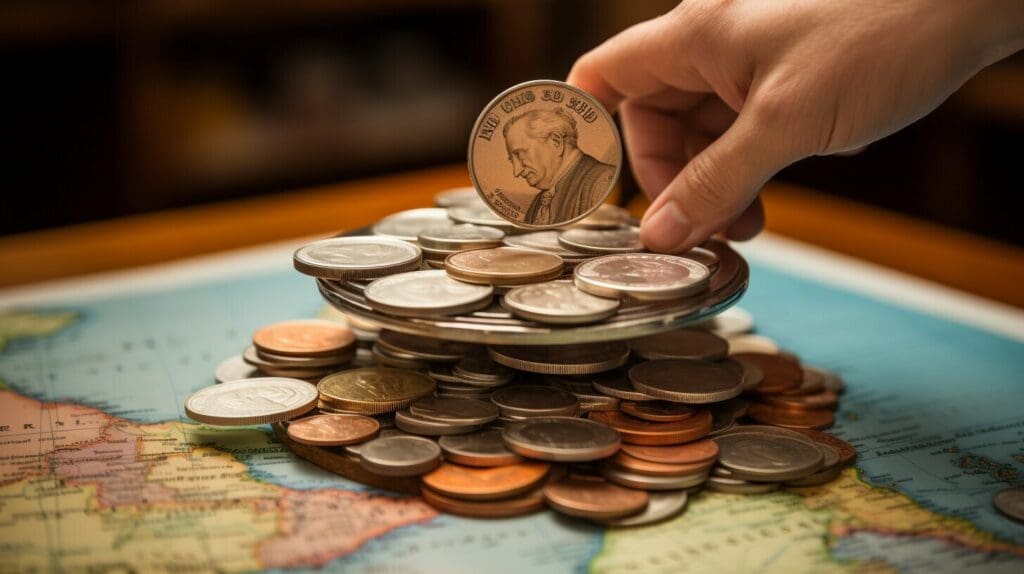

Conclusion
Argentina offers a wealth of experiences for travelers, and with the right knowledge and strategies, you can make your money go further and have an unforgettable adventure. By understanding the currency exchange system and accessing the blue dollar rate, you can stretch your funds and afford more during your stay. Whether you choose to use Western Union, explore cuevas, or negotiate with arbolitos in Buenos Aires, you have options to secure a better exchange rate.
However, it’s important to prioritize safety when handling money. Keep your cash secure and be cautious when exchanging with strangers. By following simple safety measures and being aware of your surroundings, you can protect yourself and enjoy a worry-free experience.
Planning your budget and making strategic choices are also key to having an affordable trip. Take advantage of free attractions, happy hours, and local transportation options. Argentina offers a range of budget-friendly activities and accommodations, allowing you to explore the country without breaking the bank.
Remember, the key to making your money go further in Argentina is knowledge, preparation, and smart decision-making. With these tools in hand, you can embark on a journey filled with incredible landscapes, rich culture, and unforgettable memories. So pack your bags, immerse yourself in the beauty of Argentina, and create memories that will last a lifetime! Also consider learning Spanish in Malaga
FAQ
What is the currency in Argentina?
The official currency in Argentina is the Argentine peso.
Why do many Argentines prefer to hold US dollars?
Many Argentines prefer to hold US dollars as a way to protect their savings from inflation.
How does Argentina’s high inflation affect the currency exchange system?
Argentina’s high inflation has led to multiple exchange rates and a preference for US dollars.
What is the blue dollar rate?
The blue dollar rate is the unofficial exchange rate in Argentina, offering a better value than the official rate.
How can I access the blue dollar rate?
You can access the blue dollar rate by using options like Western Union or exchanging money at cuevas (unofficial currency exchange houses).
Is Western Union a recommended option for exchanging money in Argentina?
Yes, Western Union is a recommended option for exchanging money in Argentina, as it allows you to access the blue dollar rate.
What are cuevas?
Cuevas are unofficial currency exchange houses where you can exchange money at the blue dollar rate.
Where can I find cuevas in Argentina?
Cuevas can be found throughout Argentina, and it’s recommended to ask locals or trusted sources for recommendations.
Can I use credit cards in Argentina?
Yes, as of December 2022, foreign tourists can use their foreign credit cards and receive a rate close to the blue dollar rate.
What expenses should I consider when living or traveling in Argentina?
Rent, food, transportation, entertainment, and sundries are some of the main expense categories to consider.
How can I make my money go further in Argentina?
Paying in cash using the blue dollar rate, budgeting for expenses, exploring local markets, and avoiding tourist traps can help you save money.
Are there budget-friendly experiences in Argentina?
Yes, Argentina offers many budget-friendly experiences, such as exploring free attractions and taking advantage of happy hours and lunch specials.
What safety precautions should I take when handling money in Argentina?
Keep your cash discreet and secure, avoid displaying wealth, and exercise caution when exchanging money with strangers.



